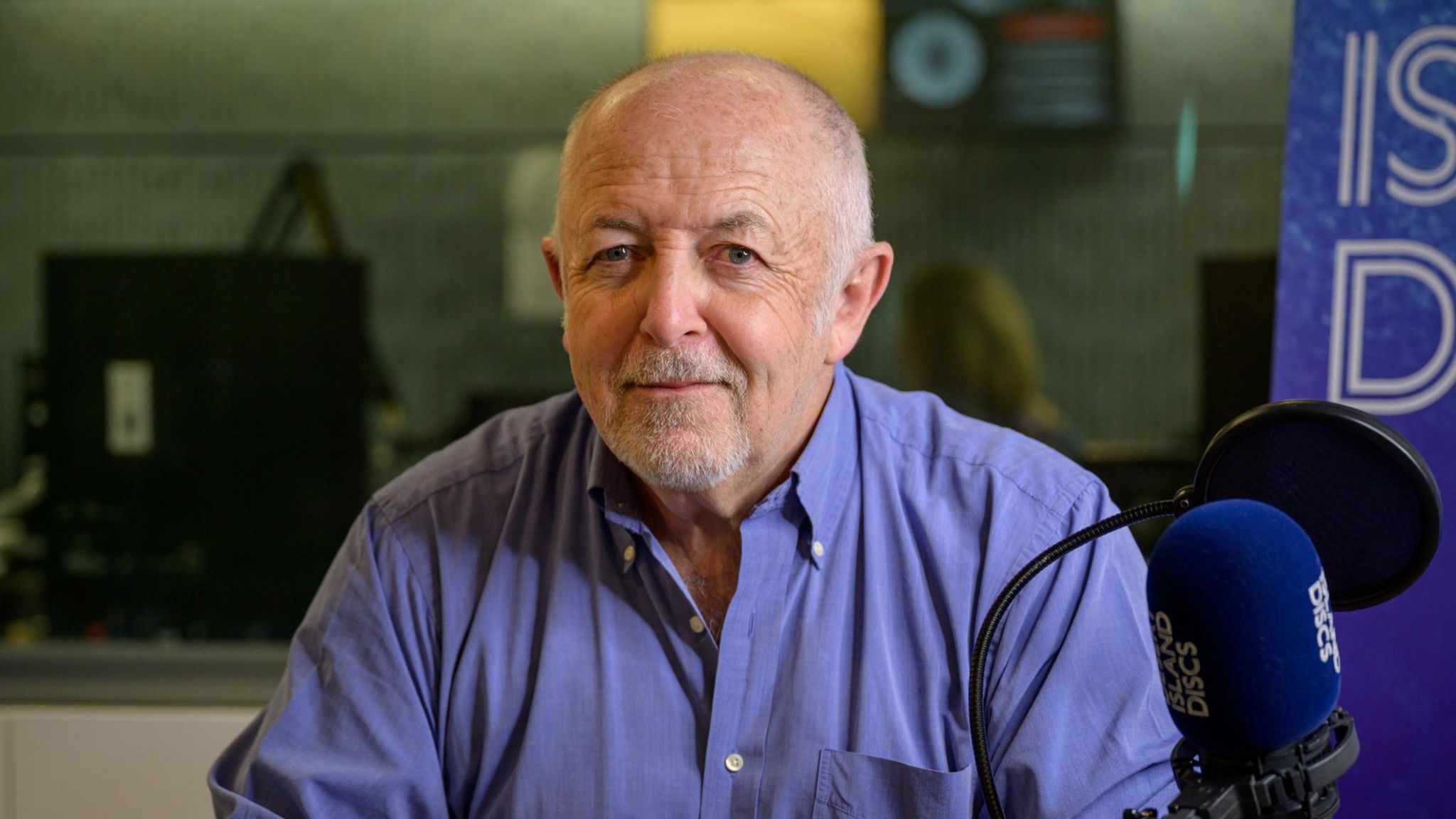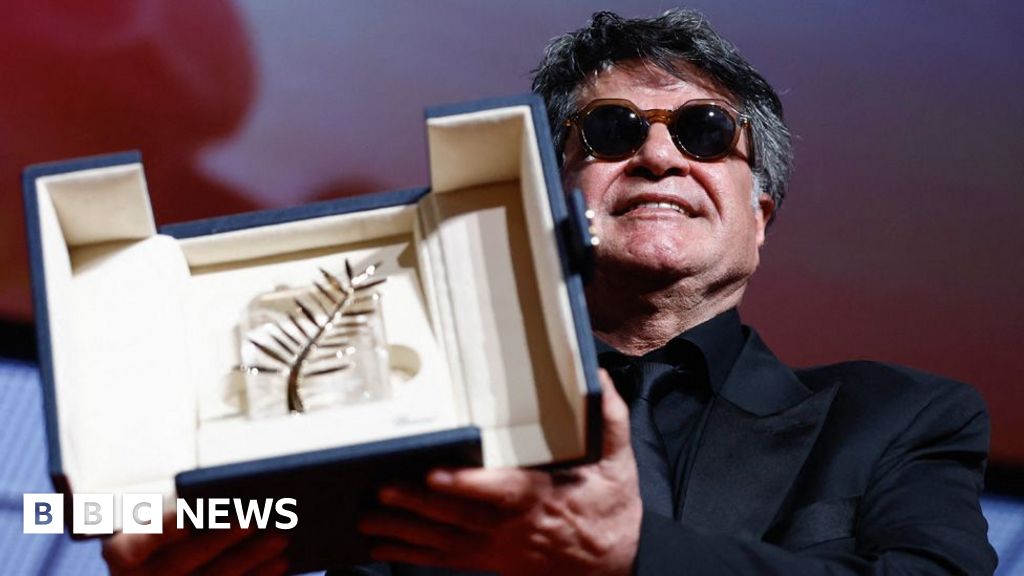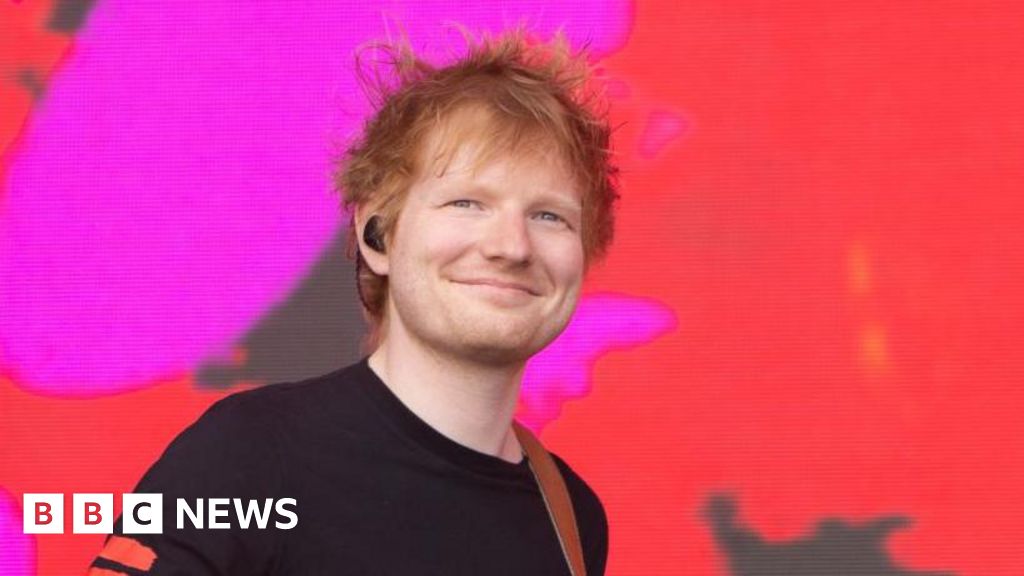ARTICLE AD BOX
 Image source, BBC/Amanda Benson
Image source, BBC/Amanda Benson
Jeremy Bowen tells Desert Island Discs that after four decades covering war, surviving cancer has changes in outlook on life
At a glance
BBC's international editor editor Jeremy Bowen says he has been cancer-free for four-and-a-half years
He tells Desert Island Discs he is "counting his blessings" after revealing a bowel cancer diagnosis in 2019
After 40 years reporting for warzones around the globe Bowen says surviving cancer has given him a new perspective on life
The BBC's international editor Jeremy Bowen has said he is "counting his blessings" four-and-a-half years after being told he was cancer-free.
The Cardiff-born journalist revealed his bowel cancer diagnosis in 2019 after noticing "funny pains in my legs and in my back" while reporting in Iraq.
He underwent chemotherapy for "quite a serious tumour," he told Lauren Laverne on BBC Radio 4's Desert Island Discs.
He said his "glass is half-full" side went away during his illness, but surviving has "brought back the more optimistic Jeremy".
"I think that has also helped me get a sense of perspective on life," he said.
His four decades with the BBC have included reporting from more than 70 countries and 20 wars including conflicts in the Middle East, Afghanistan, the Balkans, Africa, Central America and most recently Ukraine.
He has also presented documentaries and had a spell presenting BBC Breakfast.
Jeremy Bowen and Sophie Raworth on BBC Breakfast in 2000
Bowen spoke about the impact of seeing war first hand on his mental health.
"There have been some very difficult moments," he said. "I ended up with a few years ago some very severe depression.
"I took time off work. I took meds. I think you've got to count your blessings in life and not get too tied up in things."
Jeremy Bowen reported from the war in Syria as a BBC correspondent
From his first war coverage in El Salvador in 1989, he remembered feeling somewhat invincible.
"It's was so vivid," he said. "Like being in my own war movie."
Upon first hearing "shots fired in anger", he said he did not really know what they were.
"They were near me.... I think I was very excited."
Reporting from a war zone is very different now because of the rise of social media and the internet, he said.
"I think it's made journalists themselves more exposed, it's more dangerous," he explained, saying "unscrupulous" actors can now try to "influence" by killing reporters.
"You certainly get a lot of publicity and I think when I started it was much easier to be seen as a non-combatant," he said. "In El Salvador we used to wave white flags and people would stop shooting and let us cross the road."
Bowen remembers as a six-year-old his father coming home from reporting on the Aberfan disaster with his trousers caked in black slurry
Bowen has won numerous accolades including Royal Television Society awards for coverage of the assassination of Israeli Prime Minister Yitzhak Rabin and an interview with Syrian President Bashar al-Assad.
But the 2014 Baftu Cyrmu winner never forgot his Welsh roots.
His mother Jennifer was a press photographer, starting her career at the Merthyr Express, he said, while his father Gareth reported for newspapers and then BBC Wales.
"For him it was something he lived and breathed the whole time," he recalled. "One of my lasting memories when I was a kid is going to sleep with the sound of his manual typewriter bashing away on the dining room table."
He remembered at six seeing his father return home with his trousers "caked in this black slurry" after three days covering the Aberfan disaster in 1966.
Even as a 10-year-old schoolboy growing up in Whitchurch, Cardiff, he said he remembers wanting to be a foreign correspondent
"I didn't even know what it was," he laughed "I was always a bit weird. I never quite fitted in."

 1 year ago
50
1 year ago
50








 English (US) ·
English (US) ·